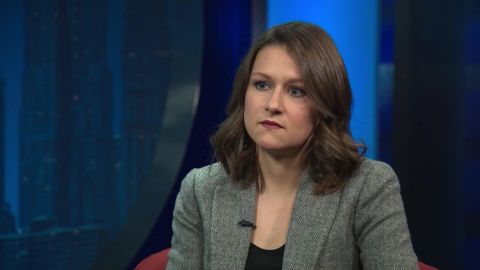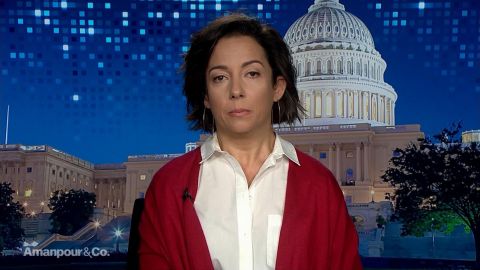Read Transcript EXPAND
AMANPOUR:
So you wrote a very surprising op-ed. Your most recent one in the New York times was about, in a sense it doesn’t matter which Democrat wins or which front runner wins the caucus because the policies necessarily won’t, won’t change. You said in terms of actual policy, it probably doesn’t matter who the Democrats nominate. If you’re a centrist worried about the gigantic spending increases, Sanders has proposed calm because they won’t happen. If you’re a progressive word that Barden might govern like a Republican, you should also calm down because he wouldn’t that is that cynical, pragmatic, hopeful, what?
PAUL KRUGMAN:
I think it’s pragmatic and hopeful. I mean, the democratic party these days is solidly progressive. It’s a, what Europeans would call a social democratic party. And that’s true even of the people we call centrists. They are in fact, uh, prepared to move policy significantly towards more inclusion, expanded healthcare and so on. Um, and on the other hand, there is a left wing of the democratic party that would like to follow more radical policies and we can argue about whether or not those would be a good thing, but the, the country won’t back those. There, there isn’t a, uh, a president Sanders would not be able to get the really expensive items in his agenda through the Senate, even if Democrats take the Senate. So even if Democrats take the set, even if Democrats take the Senate, there are enough Democrats, uh, democratic senators, you know, think of Joe mansion at one end, but there sure enough democratic senators that, that something that called for really massive increases in spending and large middle-class tax cuts, sorry, large middle class tax increases, uh, is not going to happen. Uh, so I think that if you’re worried about it, I mean, I’m, I’m trying to talk to both sides here. I’m telling you, I think the people who, who are, you know, alarmed by Sanders, all right? I am actually don’t think his policies with you that terrible, even if he could implement that, but he can’t. So it, that, that’s not gonna happen. And yeah, and uh, and anybody who thinks that the democratic party is going to, uh, be, you know, Paul Ryan in, in disguise, it’s not gonna happen.
AMANPOUR:
So let me ask you this, because are you being political or rather, are you trying to address this big conundrum that Democrats around the country seem to have and that is who is electable? Are you basically saying, if you guys are trying to make a con a calculation about who’s electable don’t because they’re all electable and their policies economically are pretty much we’ll end up,
PAUL KRUGMAN:
I actually know electability as is something I worry about quite a lot though. I don’t know the answer, but I actually, I’m much more worried about the, the hay that Republicans might make over Sander’s proposals than about his program itself. The, the, the Sanders agenda in its full form is not going to happen, but it might, he hasn’t really been, uh, you’ve edited on it by his fellow Democrats. And so, uh, what, what happened during the campaign if Sanders is the candidate worries me quite a lot.
About This Episode EXPAND
Nobel Prize-winning economist Paul Krugman argues that it won’t matter much which Democrat wins the 2020 presidential nomination. Journalist Kim Ghattas joins Christiane to discuss her new book “Black Wave.” Washington Post reporter Paige Winfield Cunningham sits down with Hari to explain the role of healthcare in the 2020 election.
LEARN MORE


